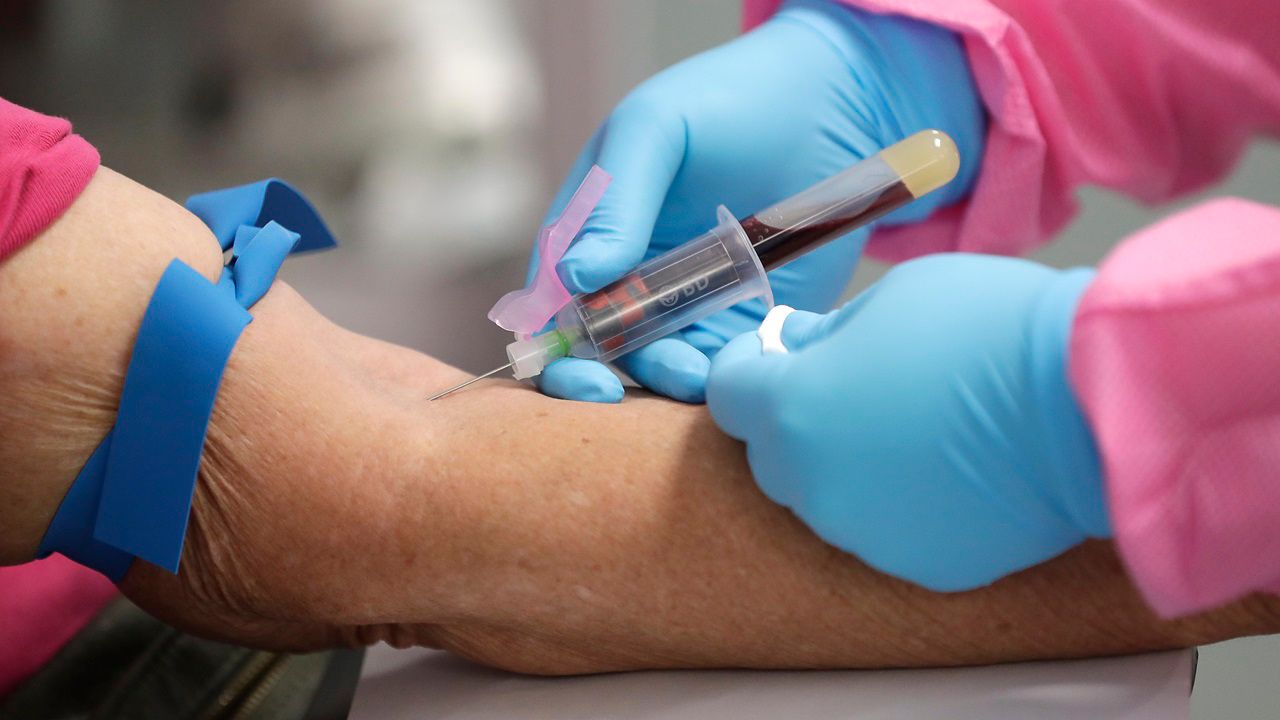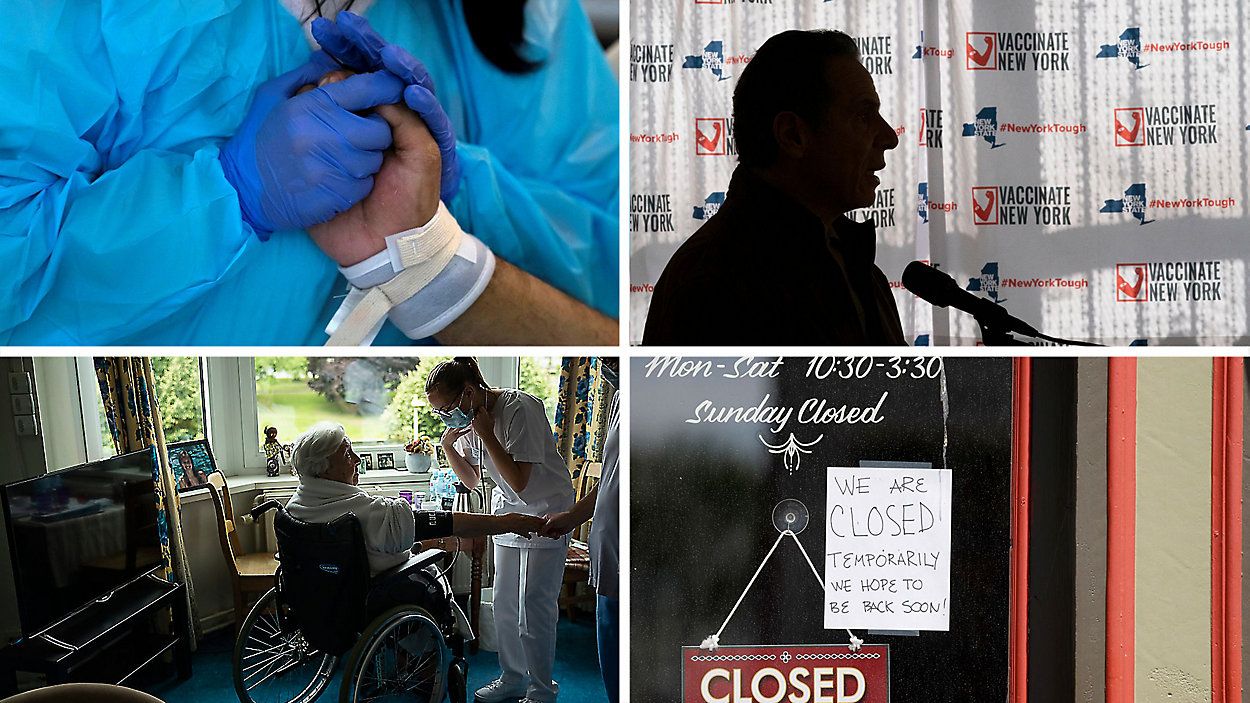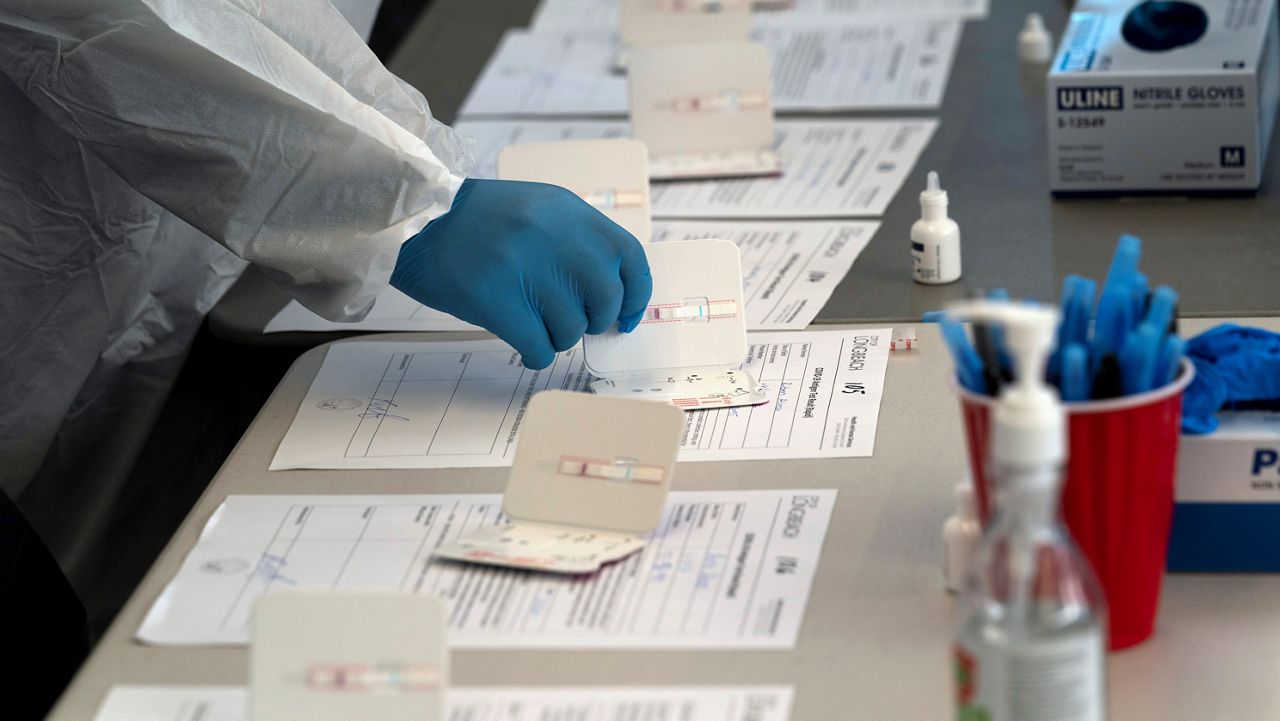School days look a little different for Melissa Russom and her daughters in the midst of schools closing during the coronavirus outbreak.
“Even if they’re home they still need to get up brush their teeth and eat their breakfast. It isn’t a Saturday and Sunday every day and it’s not spring break,” the mom of two said.
But in that balancing act, Russom has an extra worry on her plate. She and her five and three-year-old daughters, Kate and Cora, have Long QT syndrome. It’s a rare disease that causes irregular heartbeats and even cardiac arrest. Melissa was diagnosed after the sudden death of her sister, at the age of 24 back in 2005.
“We’re hyper aware on a normal day and then when you talk about a shortage of medical care, it becomes all that more real,” explained Russom.
Luckily, Long QT does not impact their immune system, so the girls are not at any higher risk should they catch coronavirus. However, Melissa says she's concerned should they need medical attention due to their disorder.
“That’s something that does scare me. Just because I haven’t needed anything yet, especially with a heart condition, it is something I’ve always assumed something would be available for me if I needed it, or if my daughters needed It. And now I’m not so sure It will be available two weeks from now, three weeks from now,” Russom added.
Even minor issues, like dehydration, can increase the risk of it becoming deadly.
“Those things that never would have concerned me, I now think of, is there going to be a bed available if there’s an emergency?” she added.
Defibrillators add another layer of complications. Melissa’s mom also was diagnosed with the disorder. Both of them have implanted defibrillators.
“Whether it’s from a recent surgery and complications with that, or a battery drains faster than it should and needs to be replaced. My mom is monitoring her pretty closely,” she said.
Melissa and her family are active in non-profits surrounding heart disease. She is regularly involved with the American Heart Association and SADS. She says she’s one of the lucky ones who can live with their heart condition, and not every family is as fortunate, especially during this outbreak.
“I’m still more concerned about being a carrier and not realizing to and maybe infecting someone else who may be a little more at risk than I am,” explained Russom.
Amid this outbreak, she’s making sure they have enough supply of their medicine should they be quarantined. Otherwise, they’re adjusting to this new indoor lifestyle and trying to keep the curve down.










